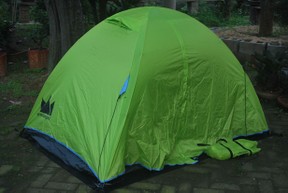 Connemara is geared for tourists, so finding accommodation is not difficult. Frankly, I'm not able to advise you when it comes to hotels - they tend to stay on the expensive side and are far outside my budget (if you manage to find a room for less than 50 euros a night you can consider yourself lucky).
Connemara is geared for tourists, so finding accommodation is not difficult. Frankly, I'm not able to advise you when it comes to hotels - they tend to stay on the expensive side and are far outside my budget (if you manage to find a room for less than 50 euros a night you can consider yourself lucky).
Camping is another matter. I've camped all over Connemara, both on campsites and rough - it works.
Campsites and caravan parks are very easy to find. Ask anyone local or look for signs, there's bound to be a camping field in each larger village. It costs around 5 euros a person and this price usually includes access to some sort of bathroom facilities.
Camping rough is officially frowned upon (especially by campsite owners). Not that I recommend breaking rules, but I've camped rough many times and never had any problems. I generally follow the guideline 'be no trouble and no one will bother you' - you know, clean up your rubbish, don't make too much noise, stay out of sight and nobody gets upset. Some people can get quite angry if you trespass on their land so try not to jump too many fences, or, if in doubt, ask if it's ok to camp.
Generally, camping in designated spots is risk free, but when it comes to ambience, nothing beats pitching a tent on some desolate beach without a soul around.
Photo source


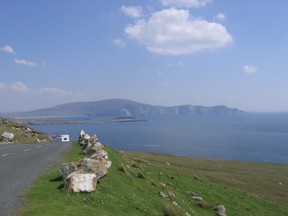
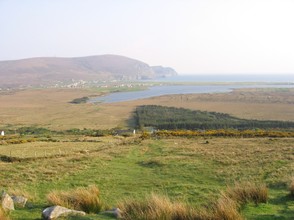
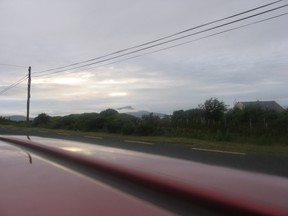 When it comes to convenience, nothing beats a car. Connemara roads are fairly decent, often narrow and full of twisting bends, but well maintained and properly signposted. Sheep remain a constant hazard. Do you know those postcards, with a flock of sheep blocking a road and cheerful message 'Irish Traffic Jam'? I did see it happening in real life once or twice but this is not where the real danger lies. Solitary sheep may be less showy, but they are more hazardous since they tend to stray onto the road, regardless of traffic levels. Anywhere in Connemara, be ready to brake, unless you think lamb ragout is worth having your car smashed.
When it comes to convenience, nothing beats a car. Connemara roads are fairly decent, often narrow and full of twisting bends, but well maintained and properly signposted. Sheep remain a constant hazard. Do you know those postcards, with a flock of sheep blocking a road and cheerful message 'Irish Traffic Jam'? I did see it happening in real life once or twice but this is not where the real danger lies. Solitary sheep may be less showy, but they are more hazardous since they tend to stray onto the road, regardless of traffic levels. Anywhere in Connemara, be ready to brake, unless you think lamb ragout is worth having your car smashed. 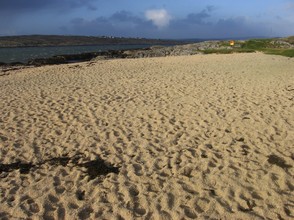
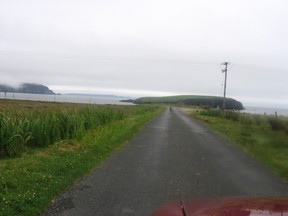
 Ireland is a bit trying when it comes to atmospheric conditions and in Connemara this is particularly true. Rain happens often - why did you think the island stays so green? - and it's usually accompanied by wind or hail. While Connemara in the sunshine is excruciatingly beautiful, in wet weather it can get a tad depressing. No season is precipitation-free, but arriving in late spring (May-June) or late summer (September) increases your chances of catching good weather. July and August, while warm (15-20 degrees Celsius), tend to be wet.
Ireland is a bit trying when it comes to atmospheric conditions and in Connemara this is particularly true. Rain happens often - why did you think the island stays so green? - and it's usually accompanied by wind or hail. While Connemara in the sunshine is excruciatingly beautiful, in wet weather it can get a tad depressing. No season is precipitation-free, but arriving in late spring (May-June) or late summer (September) increases your chances of catching good weather. July and August, while warm (15-20 degrees Celsius), tend to be wet.  Connemara is geared for tourists, so finding accommodation is not difficult. Frankly, I'm not able to advise you when it comes to hotels - they tend to stay on the expensive side and are far outside my budget (if you manage to find a room for less than 50 euros a night you can consider yourself lucky).
Connemara is geared for tourists, so finding accommodation is not difficult. Frankly, I'm not able to advise you when it comes to hotels - they tend to stay on the expensive side and are far outside my budget (if you manage to find a room for less than 50 euros a night you can consider yourself lucky). 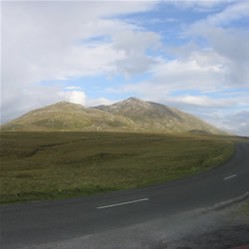

 Halloween – it’s time to get REALLY scaredon 08/31/2014
Halloween – it’s time to get REALLY scaredon 08/31/2014
 10 tips on how to get some writing doneon 08/31/2014
10 tips on how to get some writing doneon 08/31/2014
 Dervla Murphyon 08/26/2014
Dervla Murphyon 08/26/2014
 Forget colouring pageson 08/23/2014
Forget colouring pageson 08/23/2014
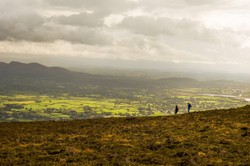
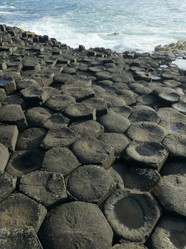
Comments
Ireland is one of top destinations on my to-go list. After all it is the land of great beer and leprechauns!
Thanks for introducing Connemara, it looks like a great alternative to classic tourism destinations.